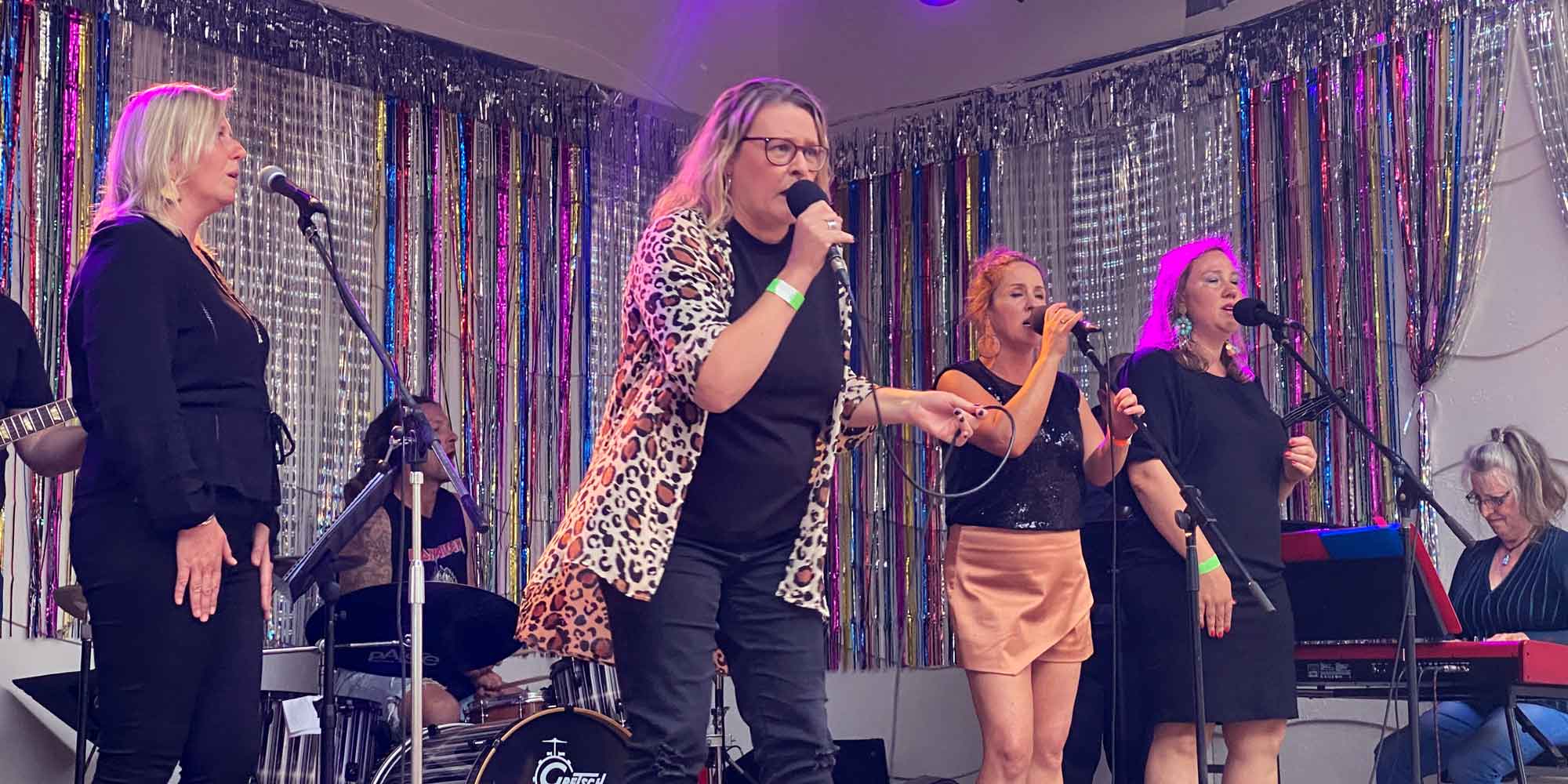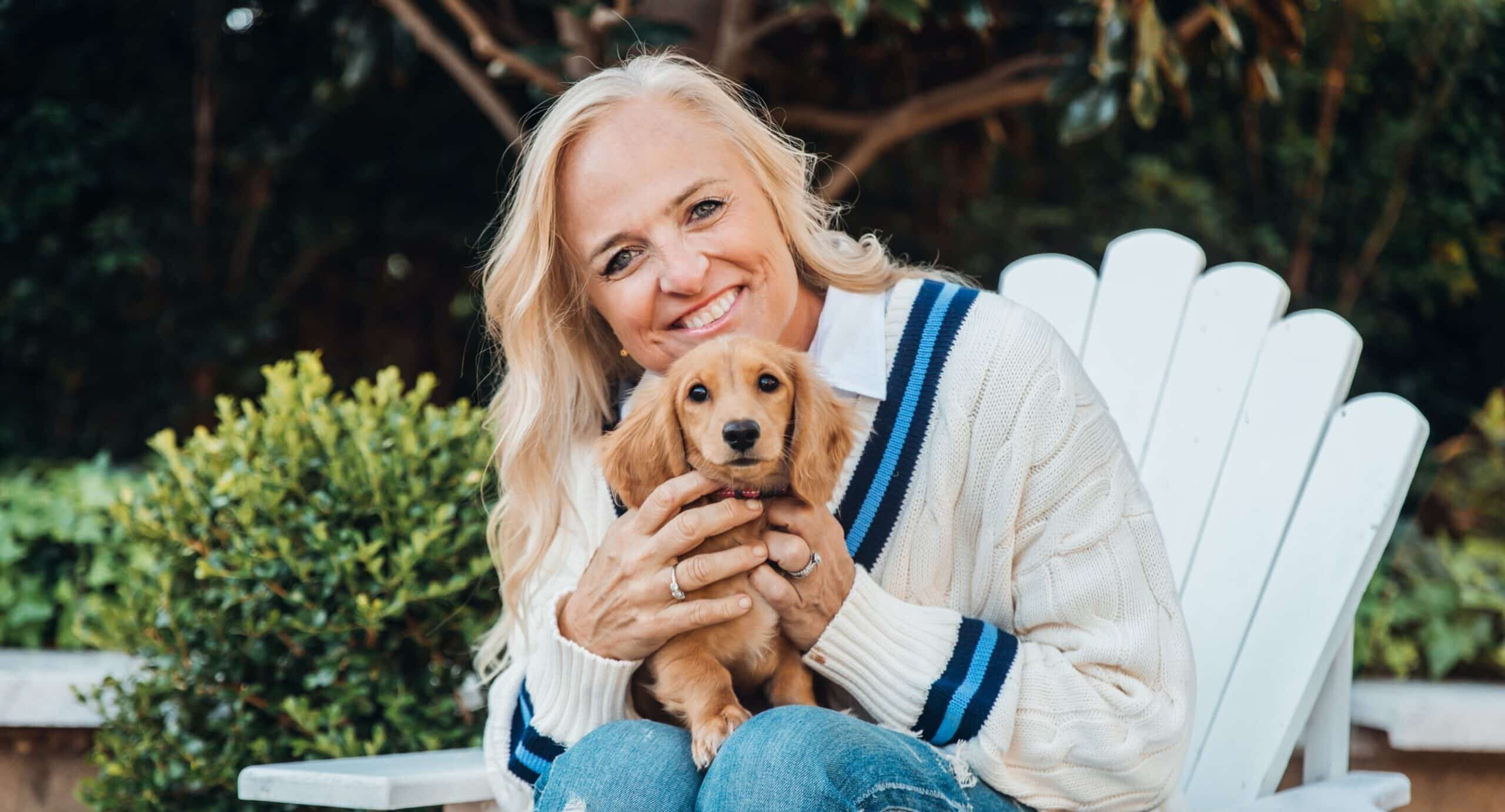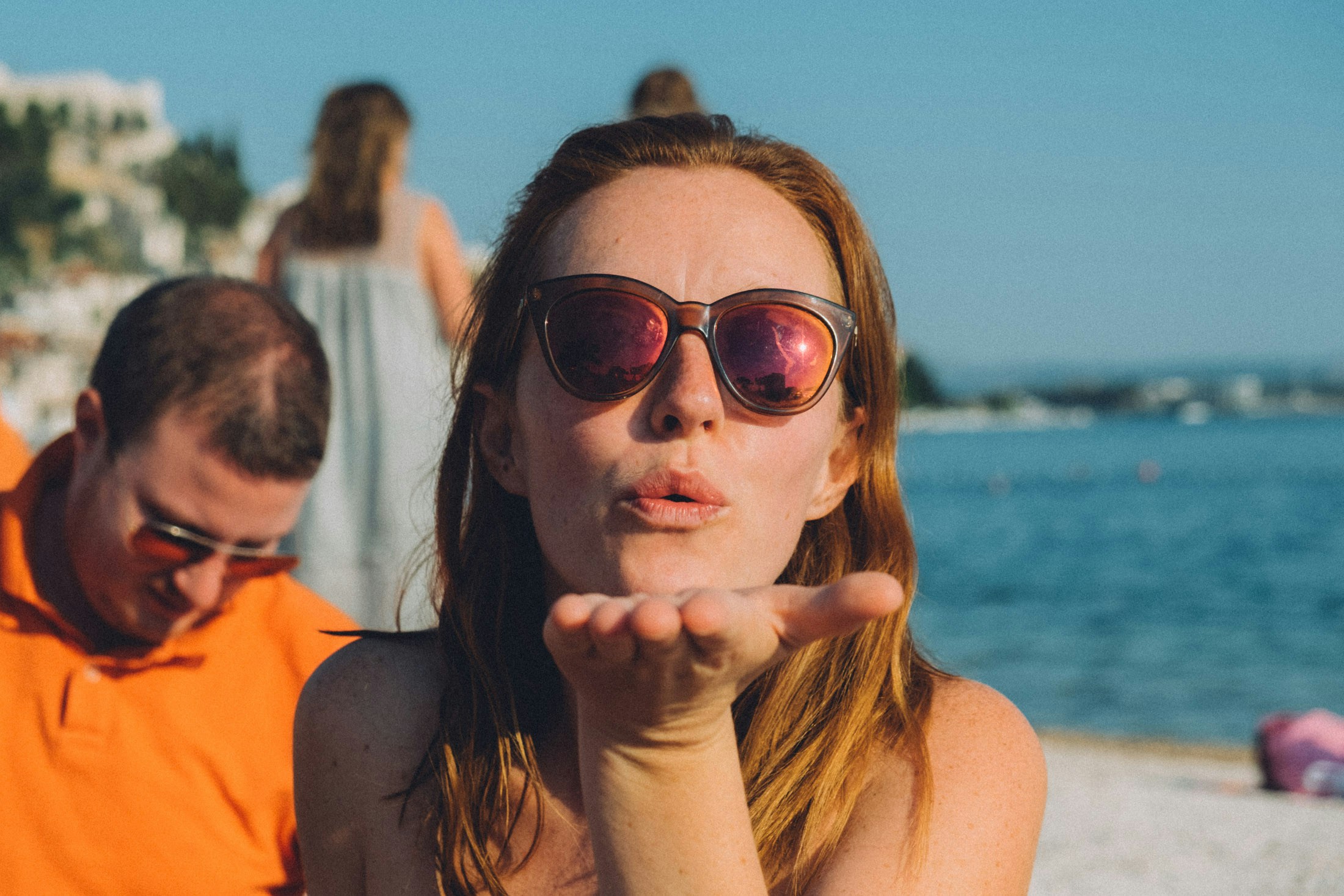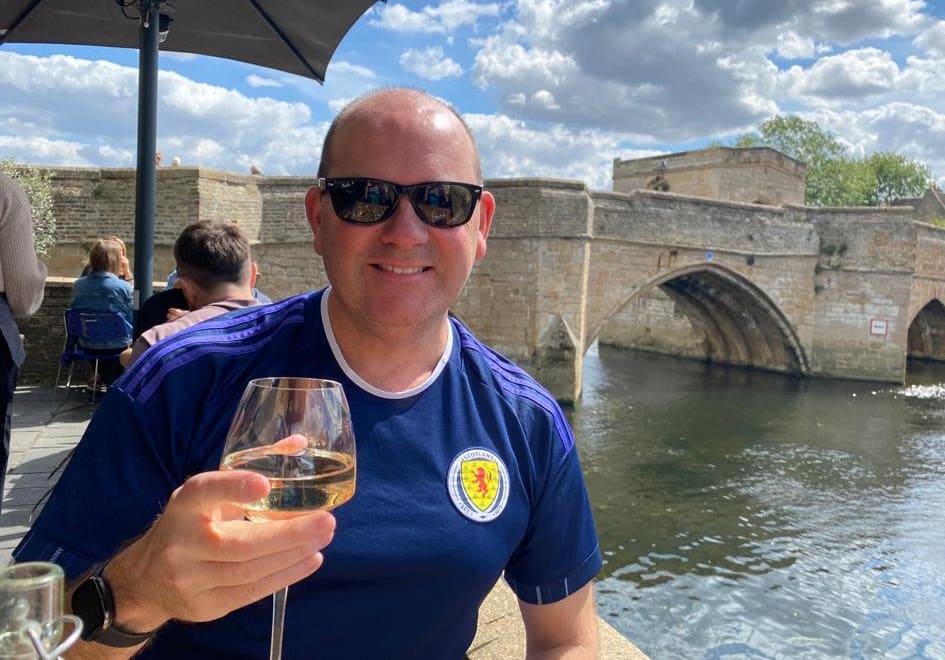
How assessing my drinking problem helped my sobriety journey
Alcoholic.
The word is so heavy, so full of undertone, implications. All of them are negative. Society has placed a lot of weight on this one nine-letter word.
Whenever I think of the word, I can hear the silent judgement floating on the wind. If you are an alcoholic, you are out of control, a derro, someone sitting in a gutter drinking out of a bottle in a brown paper bag, a person who lives, breathes and thinks constantly about drinking. Think Amy Winehouse, Charlie Sheen and the fictional Frank Gallagher from US TV series Shameless. And if you’ve gotten sober, just one puff of wind on the feather and you’ll be back there, in a flash. Apparently, once an alcoholic, always an alcoholic.
But why must we think everything is black and white? Why do people put each other in little boxes that ultimately become prisons? What if our path to being alcohol free was emancipated from the constraints of this word?
When I first started on my sober-curious path, I was adamant I wasn’t an alcoholic. Sure, I absolutely loved a drink and sure, I binged. A lot. Like, every second day. I used to say, out loud, to friends and family: “I could never be an alcoholic – I love drinking too much!”
It was a funny-not-funny joke, totally erroneous and blatantly sympathy seeking, a tongue-in-cheek statement that in one breath pleaded: “tell me I’m not an alcoholic!” and in the other, “I clearly have a problem!” But I said it because I never wanted to give up drinking and if I ever actually did become “An Alcoholic”, I knew that I would have to give up the thing I loved so much.
Irony, much?
My number one question during my sober voyage has been, “am I an alcoholic?” I have agonised over it – it has kept me up at night, it has drained my brain cells, it has caused even more anxiety than the poison that I had been putting in my body for nigh on 32 years.
This one little question is so fraught and after nearly five months sober, much reading, a lot of listening, heaps of following and truckloads of self-reflection, I truly feel it is a totally irrelevant query for me. Why? Because putting myself in a little box, a prison, is even more fraught.
Humans are complicated, complex creatures. Our traits are not mutually exclusive – we are light AND we are dark, we are black AND we are white and we are all the shades of the rainbow in between. When we think of ourselves as one concrete, hardened thing, we tend to abandon the other excellent things about ourselves that mean we don’t need a label, we shouldn’t have a label that pigeonholes us and leaves us in a morbid, negative state of being.
Labelling myself an alcoholic has not been a part of my sobriety. Rather, I say that I no longer drink, that I don’t like to put an addictive, carcinogen in my body and I will never do so again. Flipping it to the positive is what I do – I don’t want to be stuck in the past as an alcoholic sitting in the gutter drinking my cheap sherry out of a brown paper bag.
The word “alcoholic” has so much shame attached to it and I’m done with shame. I don’t want it in my life as that has been part of my problem to start with. Drinking was a way for me to rid myself of shame. Well, for the duration of the drinking session until I woke up the next morning and was filled with even more shame for what I’d done the night before.
My sober-curious journey was kick-started by the We Want to be Better podcast with Bianka Ismailovski and Annie Nolan, back in 2019. I wept – sometimes uncontrollably sobbed – all the way through those six episodes. I had an inkling I had a problem but I had pushed it down with the force of a jackhammer, ignoring it for years, hiding behind Australia’s drinking culture and the stress of my work and life in general. I had gone through a lot in the preceding 18 months – family violence, a divorce, two deaths just months apart, an aggravated burglary, a diagnosis of rheumatoid arthritis and workplace bullying. I was a single parent with a mortgage, trying to earn a living, keep the house, be a perfect parent, be a good human. I was trying to keep my s**t together and to me at the time, alcohol was a life raft. It afforded me an escape, a way to not feel anything for a little while. Compared to the rest of my life, being drunk was quite simply, blissful.
In the months after listening to the We Want to be Better alcohol mini-series, as the messages faded and my stressful, seemingly out-of-control life took over again, I plunged back into the cosy doona of self-denial. Another year passed, including the 2020 Covid sh**show, but then out of the blue, almost like a mind reader, a friend gently sent me a link to William Porter’s book Alcohol Explained (the second time she had done so but I had blatantly ignored the first message). At the time I was blanketed with the shame of a massive drunken family fight that had happened on Christmas Day, which resulted in me kicking my parents out of my house. I was broken and hurting and alone. I was in tears every day. I was at a total loss as to what to do with myself. That Christmas Day I had been so drunk that I don’t clearly remember what the fight was even about. I remember bits and pieces but it was hazy and chunks of time were blacked out. Yet after that awful experience which was 100% fuelled by booze, I continued to drink, for another 25 days, to be exact.
That little link to Porter’s book in an Instagram DM was the life raft I needed – every word of Alcohol Explained resonated with me, deep down in my core. It hit an incredibly inflamed and angry nerve, one I needed to salve, and almost overnight it flicked a switch for me, a mental switch that put all the physiological, mental and societal puzzle pieces together and really, truly helped me become sober. January 20 this year was the day I gave up booze. For good.
Porter’s chapter “Do I have a problem? The stages of alcoholism” was especially thought-provoking. He says: “I always considered an alcoholic to be someone who spent every waking hour consuming as much alcohol as they possibly could, someone who could not go a single day or even a waking hour without a drink. This is one of the reasons it took me so long to acknowledge that I had a problem. I could stop; alcoholics could not. Therefore, I was not an alcoholic.”
He goes on to say: “The definition of ‘alcoholic’ isn’t really one we need to worry about too much.” Amen to that, brother!
Porter says in this chapter that analysing our drinking should be more about understanding the process over our drinking lives – “the start and end, and the major milestones along the way”. He argues that when we have that in place, we have perspective on the whole process so that it becomes possible to assess where we are, personally. “Whether you consider the alcoholic to be at 25%, 50% or 100% of the total journey is really a question of individual preference and definition.”
I see the word “alcoholic”, with all its societal meaning, context and weight, as being one that can put you in a box that is not helpful. It wasn’t for me, anyway. Rather, I saw myself as having a problem I needed to address, just like any other problem I had to deal with such as debt or family issues or relationship problems.
Don’t get me wrong – I am definitely addicted to alcohol, I’m not in denial about that. But for me, using the word “alcoholic” is counterproductive. It is fraught with negative connotations and for so long I was exactly like William Porter – I was not an alcoholic because I could stop, and often did for days, even weeks. The word “alcoholic” is black and white, whereas my addiction was all shades of the rainbow and infused with so much meaning and layers that it couldn’t be put in a box. A little box that ultimately became a prison.
I’ve never been to an Alcoholics Anonymous meeting and I don’t think I ever will. I feel empowered by sharing my stories; I love doing so and have done so my whole life, but the thought of having to say “Hi, my name is Leah and I am an alcoholic” makes me feel a little nauseous.
For me, the word “alcoholic” keeps me locked in a prison that I am no longer in. So please don’t call me that. I’d much rather be labelled sober. Now that is a word that, to me, means utter, serene freedom.
And I am free.
Leah, a writer, lives in a little country town with a massive drinking culture. Since getting sober in January this year, she has been much less grumpy, has slept like the dead, has joined the gym and has woken up more than 135 times without a hangover. But her proudest moment was singing a Queen classic with a rock band in front of hundreds of people, totally and utterly sober. You can find her on Instagram - @leah_jo_writes






Wow! So clearly explained! I am sad you have had to go through so much; but what a woman! How honestly you have faced everything. Yes, ‘alcoholic’ is never the word I would have used and you’ve explained the difference. It makes complete sense. This will be so helpful to many who read it.
I’m proud to know you 😘
Fabulous article, Leah. Lots of great insights and beautifully written too ♥️
So great to read Leah and love to hear about the changes you’ve made!
I also have listened to the Alcohol Explained audiobook (along with the second book) and it resonated with me. Each chapter kept me saying to myself “Yep, yep, yep…I’ve experience this too”
I have gone without alcohol during June. That is, apart for mid month when I had two glasses of wine during dinner mid month which destroyed my sleep and left me out of sync for two days!
It made me realize more that ever that sober better, and something I will keep doing.
Great article Leah. I also owe William Porter my thanks, much more than the cost of the book I had to order! I think it should be on high school reading lists. I dabble in writing but haven’t gone public with my stories; maybe it’s time I did. I love that you sang sober in a band! My dream would be open mic night/stand up comedy!
Great blog. I am now 8 months sober and daily recognise the new benefits.
Can u please post the full details of the book you read and advise where to access it,
Great read! After over 300 days alcohol free (I struggle to say ‘sober’ because it makes me worry people will think I’m an alcoholic …🙄) I drank wine this week. I polished off a bottle of red across two nights. I drank it following a very stressful incident at work – which as Mr Porter quite rightly tells us, does not alleviates the stress – it actually makes us feel worse and less able to work through the situation. This blog could not have come at a better time. What has happened this week is a lesson – and shows me this is something I need to continue to work on to be a better me. Today is day 1.
Not day one. You did 300 days and had a two day slip. As a fellow traveller be kind to yourself for such a great achievement. David
Leah thank you for this perspective, so well said.
We live in a world that likes labels and boxes. It is a challenge to dare to embrace a different mindset and even more of a challenge to stand in one’s own authority .
It resonates with me.
As a person and as someone with a gift for writing , you convey your experience and thoughts with a beautiful, intelligent, compassionate and balanced wisdom .
Leah,
Thank you so much for sharing your experiences. I have been alcohol free since February 19, 2021. (My second go round with this issue ☹). I agree that labels do not help. What has helped me the most is the knowledge that I have gained. I look forward to reading William Porter’s book. Best wishes as we continue on this journey.
Cindy Hurley
Leah, that book changed my thinking entirely as well. I read it during a plane ride and landed a non-drinker. It’s been such a relief to be free of my misguided notions of what alcohol was doing for me. And it’s blissful to know I’ll never experience another hangover.
Thank you so much for sharing.
Folks, read “Alcohol Explained” only if you’re really ready to stop for good! You’ll never see alcohol the same way again.
OMG this. I could’ve written this (if I had any writing talent lol). Love it. Thankyou for putting it out there. I really struggle with the whole western drinking culture narrative: that you’re either in control of your drinking, or you’re an alcoholic, and doomed to spend the rest of your miserable life going to meetings and white knuckling. It kept me drinking so much longer than I should’ve. We need to get the message out there that there’s another way… to be alcohol FREE ❤️
Thanks for sharing your story Leah. I definitely agree that the word “alcoholic” has way too many negative connotations and doesn’t contribute to a positive intention to remove alcohol from our lives. You’ve been a great inspiration, thanks again.
You are inspirational!!! Every word you wrote sounded as it was me talking to myself.
Thank you for sharing xx
I am in the Uk but have subscribed to HSM from pretty much it’s inception having trawled the ‘net’ for some kind of help/advice and HSM definitely resonates. I receive emails, not downloaded the app but it is such a refreshing thought provoking thing to come down to my computer and read someone’s blog and positive affirmations too.
Leah your story so resonates. I am a binger;I can go months without but if /I pick up a drink sometimes I lack that self control and go all out for obliteration.
I got very offended or rather defensive may be a better description when after visiting my mother recently and downing a bottle and a half of red, after having not drunk for a couple of weeks, her looking very sad and telling me I was letting myself go, not taking care of myself. I defended myself saying “jeez mum’ can’t I have the occasional blowout without someone judging me?””Need a form of escape with all the crap I have on my plate, I work hard…etc”. With reflection I have never liked to be labelled or judged, ironically when someone has your best interests at heart! I hear the truth of what she was saying but there are always excuses as to why one feels the need to ‘switch off’ or as I term it ‘obliterate’.Pretty telling really.
I am trying to take on board these positives not ‘shoot myself in the foot’ I love the highs I experience from being sober and the ability to cope even in tough moments. The after effects of drinking never give you that feeling.
It’s remembering that in those moments when one is looking for an excuse to switch off that these can also be habitual self destructive ways of thinking and taking the self reflection a step further.
Your blog has definitely made me reflect on this destruction and self abuse. Thank you for sharing x
great article Leah. I too have had many a night of shame (or should I say “next days”?) that I regret and have said to myself after these events “that’s it, I’m giving up”, yet as I write this, I’m thinking about when I get home from work in a few days, how I’m going to the bottle shop the next day to stock up on beer and wine. I find it hard at home because my wife can have one or two and stop there, whereas that just gets the ball rolling for me. I’ve stopped plenty of times, for a month, for a few months, but always end up back where I was when I restart. I too need that “flick of the switch”moment I think.
Thank you Leah, so relatable and thought provoking. I also kickstarted my sobriety listening to the alcohol mini series by Annie and Bianka! It made me feel so much less alone and gave me the strength to commit to this amazing alcohol free lifestyle! There are so many grey area drinkers in Australia and I feel very few are able to admit they have a problem and do something about it. You should be proud of yourself! Xx
Thank you Leah from Virginia, USA! It’s that nightly glass of wine that turns into close to a bottle takes me down. I wake up with shame and regret and feel that for the first few hours of being awake. But then the stress of the day goes on, I look forward to my evening and it always includes wine. My husband and son despise it.I’ve always felt like I deserve it and I feel so classy with my beautiful glass of Chardonnay but I know it’s a lie. When I replace that time with a class or the gym I’m so glad that I skipped the wine! But other nights, pop goes the cork. Anyway,I will check out William Porter’s book “Alcohol Explained”. God Bless You! Janet
Hey Leah, thank you for sharing your story – and keep your curiosity for sobriety going! I too am about to hit five months sober! Feeling proud that I haven’t woken up thinking “Oh gawd, what happened last night….?” For 142 days. It’s pretty freeing. Have to say though that AA meetings have helped me. And though saying “hi my name is Freda & I’m an alcoholic “ still gets on my nerves, I just do it so as to participate in the group. Sharing in that safe space with a group of women who have been there, done that, and there’s no judgement, is powerful stuff. For me.
Yep the word is loaded – especially in my boozy family – so I don’t say it outside a meeting. Referring to the fact that booze is carcinogenic is a good explanation, I have found, too: anyone can refer to it with ease – it shows they’re looking after themselves, I reckon. Or the simple “nah, not today thanks”.
With time, I hope our society will see the value of a non drinking life… the tables will turn… non drinking will be the new non smoking….
In the meantime kudos to you! Enjoy this fantastic new freedom! 🌸🌻
Great story, thank you for sharing. I agree the label alcoholic can be very unhelpful. For example it would be ridiculous to say someone who never drinks more than three standard drinks and rarely more than two is an alcoholic. Therefore no problem right? Wrong. If I only want to drink one or two glasses one or two nights a week and I’m finding that really hard I have a problem. I intrinsically know what is harmful to my body but struggle with the impulse to drink. That’s real and it’s not alcoholism.
I thought my previous letter may have been published. Maybe it wasn’t such a feel good story that we all desperately want. Maybe it showed that unlike so many others I read about on here, that I am very much struggling to get on top of the beast. Having said that, I also realise that alot of people here are only ever one drink away from being where they were originally. I can understand the want to keep this website a very positive one, with a nice vibe, but let’s be honest and talk about both sides of the equation.
Firstly let me congratulate you on your heroic effort to achieve a better life for yourself and ultimately those around you! I am inspired to see and hear a woman of similar age tell her oh, so familiar story. Most stories are by much younger woman and I always feel as if I’m not quite able to really align with them. This time I do and for that I thank you deeply for sharing.
I totally agree with this. I have been AF for quite a while now, will be 2 years in October. I think “alcoholic” is not a helpful term. I don’t like that it is referred to by some as a “disease”. It’s not a disease – it’s a choice, just like smoking or eating a block of chocolate. Some people (like me) have a personality where everything is to the extreme, when I was a smoker I was a heavy smoker, when I took up running I gravitated towards marathons (and still love the long stuff), and drinking was no different – just too much of it, too often. Just easier to remove it from my life… which is a gazillion times happier and less complex without all the fighting in my head. Loved your article Leah, thanks.
Perfect reflection of my own life choices.
I LOVE THIS blog of Leah’s, everything she has written is so true as to how my journey went, and how I feel/ felt.
Thank for your story, so succinctly put, and so identifiable!!
I hear you sister!
Thanks for having the courage to share your story.
Great blog Leah. I think the fear of being called an alcoholic keeps so many people from experiencing the freedom of sobriety.
I love this, thank you for sharing your story so honestly and well written. I love “I’d much rather be labelled sober”. 🥰🥰
This resonated with me! Thanks for sharingn